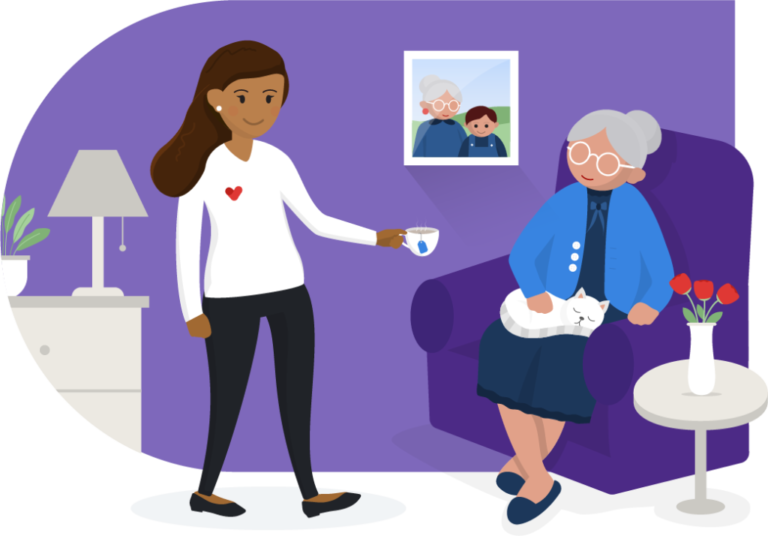
Choosing the right type of senior care for a loved one is one of the most important—and often overwhelming—decisions...

Many of the calls we get are from adult children of a parent with dementia. It’s all too common.
In most of these cases, the parent is no longer safe to live alone.
Two major concerns for a senior with dementia living alone are medication management and personal safety.

And there can be serious consequences of not taking medications correctly.
Over medicating can lead to drowsiness or dizziness resulting in a fall. It can also cause a person to not sleep at night, especially if they sleep too much during the day. And if a parent with dementia doesn’t sleep at night, it can lead to dangerous wandering behavior.
Another problem with not taking medications correctly is bowel irregularity. Toileting problems can result in discomfort or toileting accidents.
Find Care Now
The safety of any elderly person living alone is always a worry, even if their mind is sharp. But when you add dementia to the picture, safety becomes a larger concern.
The reality is that for a parent with dementia, anything you can imagine happening can actually happen. This can be wandering outside and becoming disoriented and lost, or leaving the stove or other hot surface on resulting in a fire.
And the most common reasons any senior ends up in the emergency room become magnified when you have a parent with dementia. These common reasons are falls, dehydration, being under nourished, and urinary tract infections.
What are families to do?
First, remember that if you are legally responsible for your parent with dementia or Alzheimer’s, not keeping them safe could result in a visit by Adult Protective Services or the police.
If no one who has the legal ability to make decsions on behalf of a parent with dementia, it gets more complicated.
Care Options:
We also have lots of small board and care homes that care for seniors with cognitive impairment, and lots of good dementia care communities.
Elder Answers can help narrow your options based upon your family’s specific situation and needs

Choosing the right type of senior care for a loved one is one of the most important—and often overwhelming—decisions...

Caring for an aging loved one is a journey filled with love, patience, and dedication. However, when memory-related issues...

In 2025, the cost of in-home care continues to be a critical factor for families seeking senior caregiving services....

As our loved ones age, their care needs often change, and navigating the world of senior care facilities can...